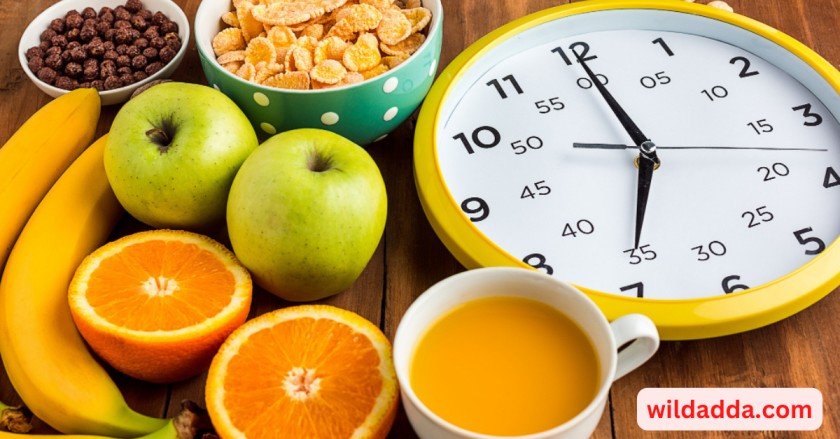Table of Contents
Introduction
With major milestone birthdays comes reflection on caring for our health and longevity. Many women over 50 consider trying popular diets like intermittent fasting to jumpstart weight loss goals and feel their best entering older age. But can recipes that involve strategic fasting actually deliver meaningful results after 50? eight loss after 50
Examining the research and potential benefits – plus crafting sustainable lifestyle changes – will determine if intermittent fasting (IF) should be part of your plan. Along with assessing complementary nutrition and exercise needs to maximize wellness during peri-menopause and beyond.
What the Research Says About Intermittent Fasting and Weight Loss after 50 in 2024
Intermittent fasting continues to gain mainstream popularity thanks to initial research showing potential advantages for weight loss, blood sugar regulation, and encouraging other generalized health improvements. Weight loss after 50
By cycling between intentional fasting periods followed by designated eating intervals, IF may aid weight loss through these key mechanisms:
- Lowers insulin levels which prompts body to burn stored fat
- Suppresses hunger signals and reduces total calorie intake
- Triggers ketosis which burns fats for fuel when glucose is scarce
- Increases human growth hormone for additional metabolic boost
For those trying to lose significant weight however, results from trials focused specifically on overweight women over 50 remain limited so far. There is some early evidence that incorporating IF with consistent resistance training shows increased fat loss versus diet alone after menopause. Weight loss after 50
Overall though, quality long term studies confirming sustainable weight management strictly from intermittent fasting for women over 50 are still needed.
Potential Benefits of Intermittent Fasting for Over 50 Crowd

Beyond potential weight regulation, there are a few other compelling incentives around longevity and illness prevention that make trying IF over 50 worth consideration, including:
Heart Health – Lowering risk factors associated with cardiovascular disease like improved blood pressure, glucose regulation, and reduced inflammation.
Brain Function – Enhanced cognitive abilities and neuroplasticity including focus, processing, and learning new information. Some association with deterring neurodegenerative diseases as well.
Cellular Repair and Anti-Aging – The stresses induced through routine fasting spur adaptive biological responses that optimize cell repair. This includes increased autophagy.
Cancer Prevention – Early research shows potential for improved immunotherapy responses and reduced progression of some cancers like breast and colorectal.
These associated wellness perks likely compel many over 50 to experiment with intermittent fasting for reasons beyond just straightforward weight loss. Weight loss after 50
Developing a Sustainable Intermittent Fasting Plan
The most common IF approaches involve condensing all meals into a shortened 6-8 hour daily window, along with specifying certain low calorie fluids permitted during the extended fasting periods.
But for those new to intermittent fasting over 50, more gradual and forgiving plans allow your body to adjust before moving to more advanced techniques. Healthy rate of weight loss aim for 1-2 pounds weekly.

Beginner IF Method – Start with 12 hour fasts by simply extending your overnight period an extra few hours. For example finish dinner by 6 or 7pm, then don’t eat again until breakfast next morning.
Intermediate IF – Lengthen the daily fast window to 14-16 hours when comfortable, such as finishing dinner by 6pm and not eating again until 10am. Can modify eating window days depending on social plans.
Advanced IF – Commit to a consistent 16:8 schedule or condense meals into a 4-6 hour window if pursuing more aggressive weight loss. Important to prioritize nutrition density in two meals and listen to your body’s signals.
Patience is vital – it can take 6-8 weeks to notice weight loss results. Supporting IF with nutrition Dense whole foods, staying hydrated, reducing inflammation, managing stress, and getting 7-9 hours sleep all optimize success too.
Other Diet Considerations After 50 for Optimal Health
Intermittent fasting can serve as a beneficial component of your overall eating pattern after 50, but should not solely define your nutritional approach. Some additional science-backed diet tips for maintaining wellness after 50 include:
- Ensure adequate intake of protein, fiber, fruits, vegetables, and anti-inflammatory fats
- Stay hydrated and minimize sugars, refined grains and excess salt
- Take calcium, Vitamin D and other key supplements if deficient
- Limit portions and practice mindful eating for sustained weight management
- Consult your physician before making major diet changes if you have underlying health conditions
- Focus on developing sustainable balanced eating habits 80% of time rather than restrictive extremes
While introducing periodic fasting windows can be worthwhile, safeguarding nutrition status should take priority based on what your changing body specifically requires after 50.
The Bottom Line: IF for Weight Loss after 50
Implementing an intermittent fasting protocol can deliver tangible weight loss results after 50 for some women. It shows particular promise when combined with strength training.
However, as with any restrictive diet method, take precautions before jumping in too intensely. Make sure to meet nutritional needs, listen to your body’s cues, and slow progression if you feel unwell. Develop sustainable habits you can envision maintaining long-term.
Be diligent tracking results and ask your doctor before changing medications or if uncertain how IF could impact existing health conditions. While current research shows potential, confirm intermittent fasting aligns as part of a holistic approach benefiting your unique fitness and aging goals.
FAQS
FAQ #1: How much weight can you lose doing intermittent fasting after 50?
How much weight you lose with intermittent fasting over 50 varies widely depending on your consistency following the fasting and eating periods, changes you make to diet and exercise, plus influences like metabolic factors. For women over 50, a reasonable goal is 4 to 8 pounds of weight loss monthly following a 16:8 style fast combined with 3 days a week of strength training and a nutrition dense diet in the eating window. This equates to 1-2 lbs weekly. Losing at faster rates risks malnutrition and regain.
FAQ #2: Is alternate day fasting safe after 50?
Studies on alternate day fasting (ADF) which involve no or very restricted calories every other day have not focused specifically on over 50 populations. More research is still needed on ADF safety for menopausal women. If attempting ADF, it’s vital to avoid nutritional deficits and closely monitor effects like low energy levels or changes in health conditions. Beginners are better served starting with more moderate and sustainable intermittent fasts like 12-16 hour windows and working with a doctor to confirm diet method is appropriate for your personal health factors.
FAQ #3: What are the best foods and meals to eat when doing intermittent fasting after 50?
When intermittent fasting over 50, the hours you do eat take on amplified importance for fueling your body efficiently. Since eating windows are condensed, nutrition density is vital. Focus meals on high protein sources like fish, eggs, lean meat, nuts, seeds and beans. Incorporate anti-inflammatory fats like olive or avocado oil along with fruits, vegetables, and whole grains for essential vitamins, minerals and fiber. Hydrating foods are key too – soups, smoothies, and electrolyte drinks counter fasting dehydration. Time carb intake strategically around exercising.
FAQ #4: Is intermittent fasting more difficult after menopause?
Some postmenopausal women do report increased challenges with intermittent fasting due to effects from metabolic, hormonal and body composition changes during this life phase. Feeling hungrier sooner, low blood sugar symptoms, problems sleeping, and acute energy crashes leading to exercise difficulties or overeating when breaking fasts are not uncommon complaints for intermittent fasters over 50. Check with your doctor if side effects persist or your personal reaction raises concerns. Adjusting eating window length or designated hours that better aligns with needs may help mitigate problems.
FAQ #5: Are supplements recommended with intermittent fasting over 50?
Supplement recommendations when intermittent fasting over 50 include a daily high potency multivitamin and mineral complex plus extra calcium and Vitamin D for bone health and strength benefits. Omega-3 fish oil capsules support heart health, joint flexibility and brain function as aging increases. Some IFers (especially women) also opt to take branched chain amino acids (BCAAs) to protect against risks of lean muscle loss during fasting periods. Hydration enhancing electrolytes and drink mixes help counter headaches, fatigue and cramps too. Check with your physician before adding supplements if you take medications or have underlying health conditions.
